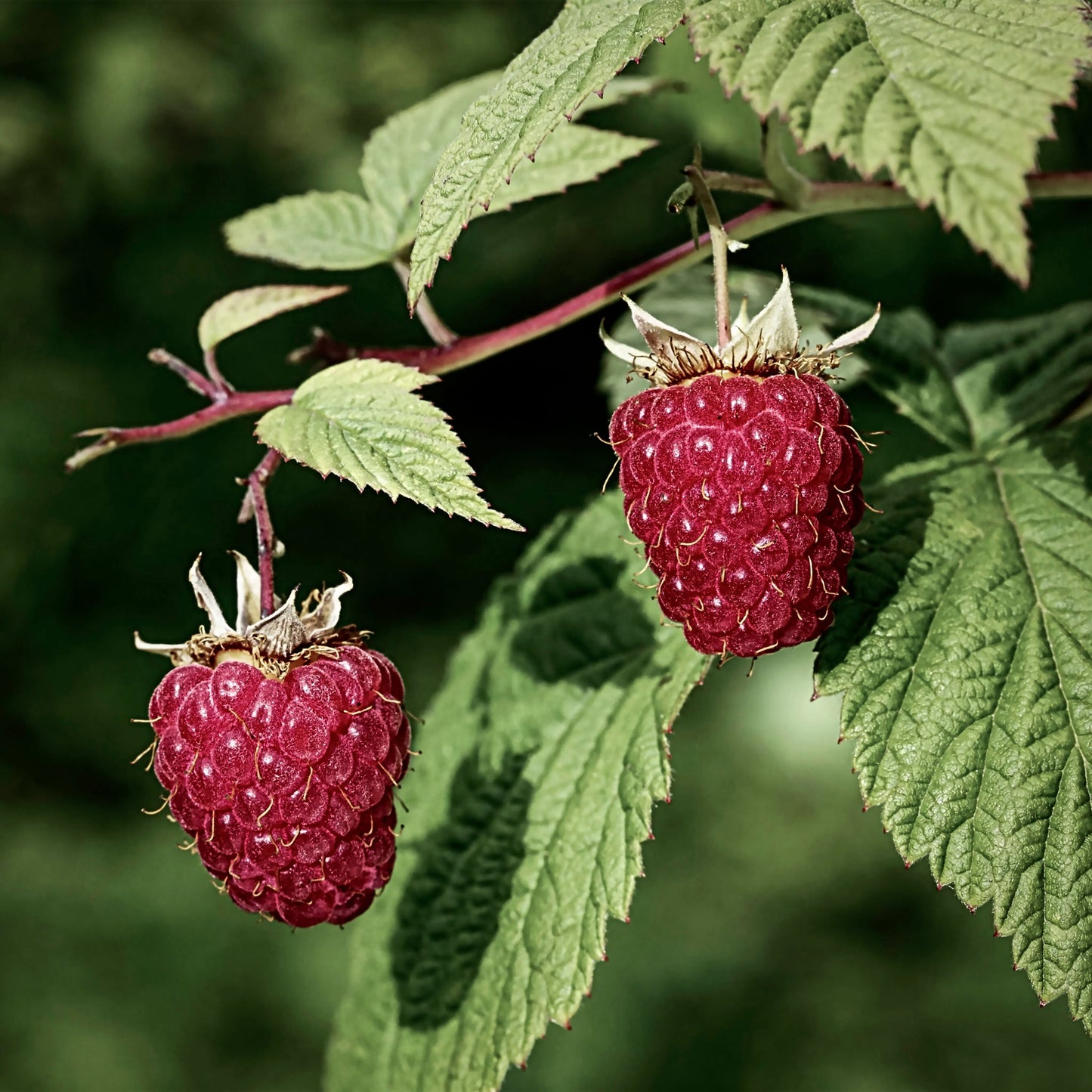Fruits And Shoots Plant Farm LTD.
Raspberry | Tulameen
Raspberry | Tulameen
Couldn't load pickup availability
Tulameen is a best-seller at our nursery and it's easy to see why! The extra-large berries are considered to be one of the best tasting raspberries on the market. The harvest season typically begins in late July and can extend well into September. A popular commercial cultiver, Tulameens firm texture makes it easy to harvest, distribute and store. This cultiver features a vigorous and upright growth habit, reaching a height of around 4–5 feet. The canes are strong and thornless, making them easy to handle during both pruning and harvesting. While the canes are self-supporting, it's still recommended to provide support, such as a trellis or fence to keep the plant upright and tidy. Tulameen raspberries are disease-resistant, with good tolerance to common raspberry problems. Hardy in USDA zones 5 through 8. The harvest season typically begins in late July and can extend into September.

Common Raspberry Questions
What type of soil do raspberries need?
Raspberries grow best in slightly acidic, moist but well-drained soil. Avoid heavy clays. We recommend adding wood chips in the planting row and mulching around the canes helps conserve moisture and improve soil tilth.
How do I prune summer-bearing raspberries?
Summer-bearing raspberries produce fruit in a concentrated 3-4 week period, making them ideal for freezing or juicing. The best way to maintain and prune summer bearing raspberries is to remove all canes that have fruited during the dormant season. These fruited stems will be a light gray color compared to the new canes that will still have some green or red color to them.
How do I prune everbearing raspberries?
Everbearing raspberries produce fruit in early summer on last year's canes (floricanes) and again in fall on new growth (primocanes). To maintain them, prune out the oldest and driest canes while keeping the new growth, even if they fruited in fall, as they will fruit again next spring. Alternatively, everbearing canes can be cut to the ground every winter and allowed to grow up and fruit in the fall. While this means they won’t fruit at all during the early summer months, they will yield a bountiful fall harvest with the easiest pruning regimen.
Summer-bearing v.s Everbearing?
Summer-bearing raspberries produce a large, concentrated harvest in a short period, making them ideal for preserving, but they only fruit once per season. Everbearing raspberries provide a steady supply of berries from early summer into fall, offering fresh fruit for months, but they yield smaller amounts at a time. Everbearing varieties also require more selective pruning unless cut to the ground annually, while summer-bearing types have a simpler pruning routine.

